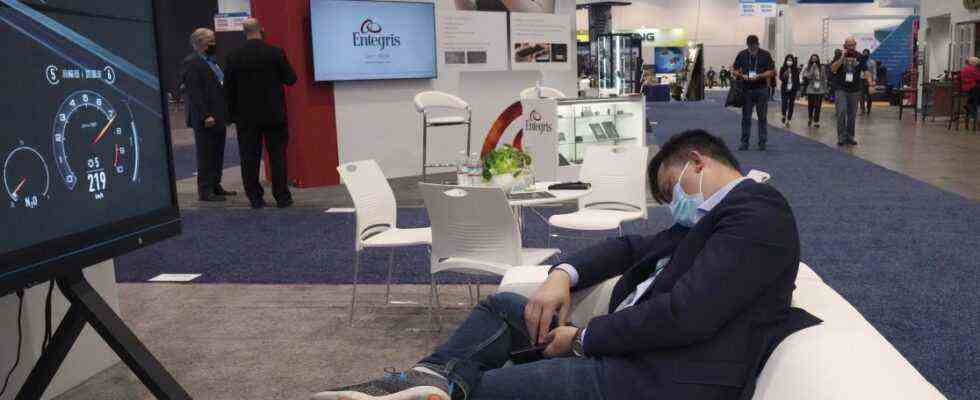The pictures of empty halls and halls looked quite post-apocalyptic. In this respect, the CES, the former largest technology fair in the world, has already hit the nerve of the times. Instead of the usual 200,000 visitors, just under a tenth of them came to Las Vegas. At the stands Air taxi prototypes, electrically powered snowmobiles and smart birdhouses waited in vain for interested parties. The only thing that was reminiscent of normalcy was the tasteless patterns on the hotel carpets.
In the past, not only products were presented here, but utopias were also sold. This is of course difficult when the audience mainly participates virtually. You tried anyway. The Metaverse, as Mark Zuckerberg had announced a few months ago, could not be escaped. The unimaginative competition gratefully accepted the catchphrase. In the zoom calls and also at individual live events, promises were swarming that the Metaverse would revolutionize every little facet of one’s own life. How exactly, there was no answer to that. Who will bother with details in the face of the big picture?
The promise was that one would be smarter, run faster, even live longer
The visions of the future not only seemed unimaginative and exhausted, they have lost credibility anyway because of the present. Never before have you been so dependent on technology as you are today. And never before are you more likely to witness their shortcomings. Who can still believe in a completely virtual version of the Internet that looks like in science fiction films when the router went on strike again that morning and made the video conference with the boss impossible?
To understand the height of the fall, you might have to be there when the latest equipment was unveiled in the pre-pandemic times. There was jostling and scuffle just to be the first to touch a phone, selfies were proudly taken and breathlessly tweeted live. Digital gadgets have long acted as talismans that protect against the spiritual vacuum of the present. Relics made of scratch-resistant glass, aluminum and rare earths.
Technology was not only an expression, but also an extension of oneself. Something that saved the user from the ordinary world and immersed him in another, more exciting one. The promise was that you would see more details, be smarter, run faster, and even live longer. But instead of transcendence there are now only a few more megapixels, if half a gigahertz more power is squeezed out of the processors, new interfaces are built in. People who just a few years ago fell into quasi-religious rapture in view of the new generation of smartphones, now shrug their shoulders wearily.
Among the novelties: a car that changes the color of the body at the push of a button
Even the US magazine has noticed that there was somehow a break between the public and the industry Wired noticed. Once they were proud of their unwavering optimism in technology, word now seems to have got around that things are not going quite so smoothly. As the new editor-in-chief promised in a manifest last week, in the future they want to “tell stories about the biggest global problems – and what role technology plays in them”.
At CES, we’re not ready yet. Among the innovations presented was about one Car that color at the touch of a button the body changes. Those who make an effort may still find it impressive today. Or also a bit perverse in his self-forgetfulness towards the times in which we live and their challenges. A high-tech face mask seemed much more practical. But here, too, the product designers couldn’t think of much more than to build in LED lights and a loudspeaker so that the wearer can annoy his environment even more efficiently.

